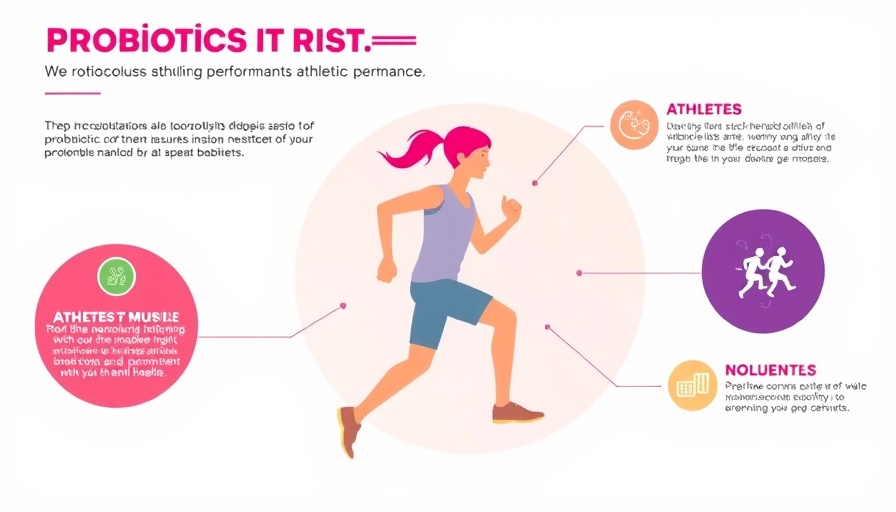
Exploring the Impact of Probiotics on Athletic Performance
The connection between probiotics and athletic performance has been increasingly scrutinized, gaining attention from researchers, athletes, and fitness enthusiasts alike. Probiotics, those friendly bacteria that are known for their gastrointestinal benefits, have been touted for more than just digestive health. But can they really improve your athletic abilities? Recent reviews and evidences suggest there's a nuanced relationship at play.
What the Research Says
A comprehensive review of current studies reveals that probiotics can indeed have a positive effect on certain aspects of athletic performance. Some studies suggest improvements in endurance, as well as reduced muscle soreness after strenuous exercise. This might be due to the enhancement of gut health and the modulation of inflammation in the body, both crucial for recovery. However, it is essential to note that results can vary by individual and that the science is still evolving.
Who Can Benefit the Most?
Men aged 35 to 55, particularly those involved in regular heavy exercise or competitive sports, might find probiotics especially beneficial. This demographic often faces increased stress on the body and may experience decreased gut health as they age. By potentially improving gut microbiota, probiotics might help in enhancing nutrient absorption and immune responses, essential for active lifestyles.
Parallel Examples in the Sports Nutrition World
This investigation into probiotics mirrors trends seen with other supplements, like omega-3 fatty acids, which also boast significant health benefits for athletes. The key takeaway is that the integration of these supplements into diets isn't just a trend, it's a potential path to enhanced performance — provided they are backed by scientific research and tailored to individual needs.
Understanding the Controversy
There is a healthy degree of skepticism surrounding probiotics. Some studies have shown negligible benefits, casting doubt on the efficacy of these supplements for everyone. It's important to approach the inclusion of probiotics in sports nutrition with a discerning eye; what works for one person may not hold the same results for another. Consulting with a nutritionist can help personalize the approach.
Future Insights: Where Do We Go From Here?
As we look forward, the field of probiotics and athletic performance is likely to grow. More tailored research can pinpoint specific strains that may offer the most benefit for athletic populations. With ongoing studies, we can expect clearer insights that define guidelines for properly integrating probiotics into workouts and recovery diets.
Practical Steps to Incorporate Probiotics
If you're considering adding probiotics to your regimen, start with foods like yogurt, kefir, and fermented vegetables. Many commercial products also contain probiotic strains, but it's advisable to choose those with a proven track record. Be sure to monitor your body's responses and stay hydrated to support their benefits.
How Probiotics Make You Feel
For athletes, the emotional aspect of performance can be just as important as physical conditioning. By potentially aiding in digestion and recovery, probiotics can have a significant influence on both physical readiness and mental focus — crucial factors for performance in competitive environments. Imagine entering that big game or race feeling relaxed and ready, knowing your body is fully supported by a balanced gut.
Actionable Insights for the Fitness Enthusiast
So, can probiotics boost your athletic performance? The emerging evidence suggests they could play a positive role in digestion and recovery, making them worth trying. However, consider your individual dietary needs and consult with health professionals for tailored advice. Making informed decisions about your health is a step toward unlocking your true athletic potential.
As you reassess your fitness routines, think about incorporating probiotics where applicable. Engaging in whole-food nutrition while tuning into how your body responds can foster a more effective and enjoyable fitness journey.
 Add Row
Add Row  Add
Add 




Write A Comment